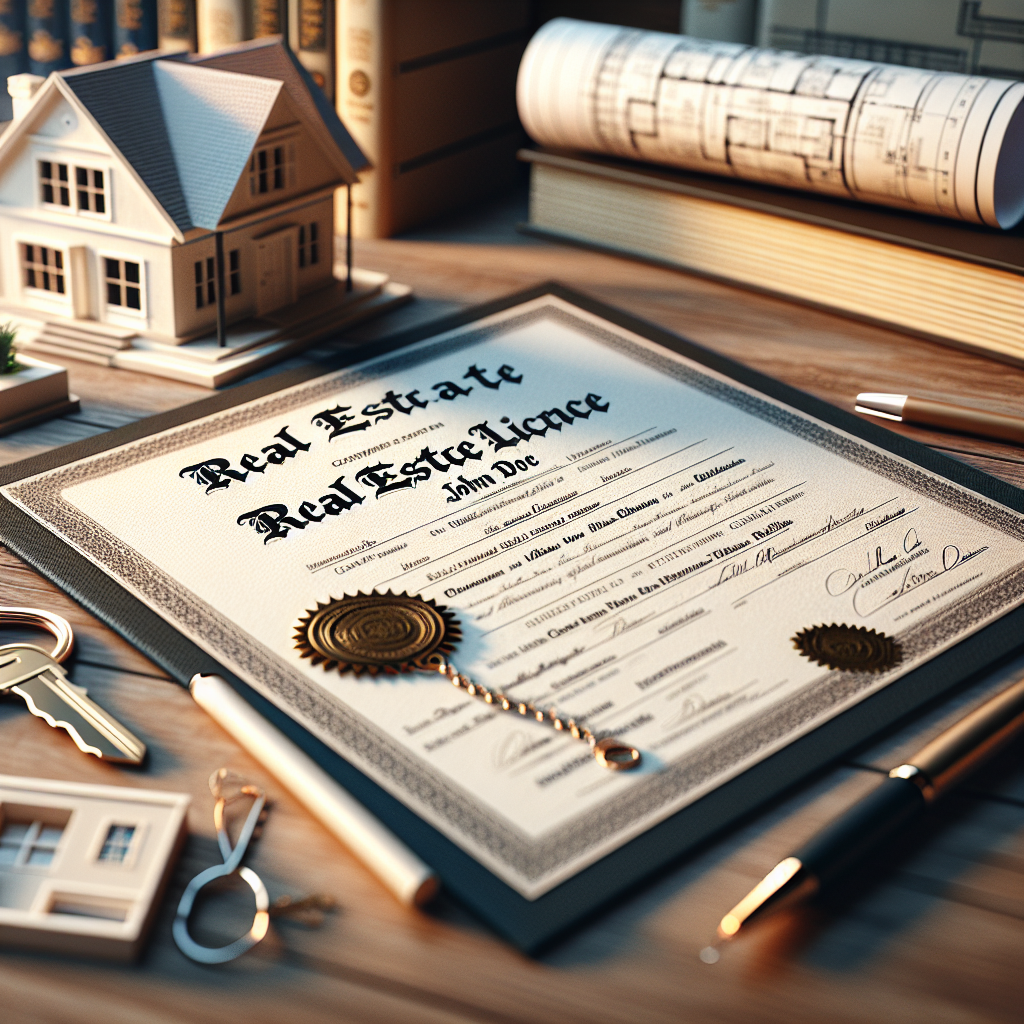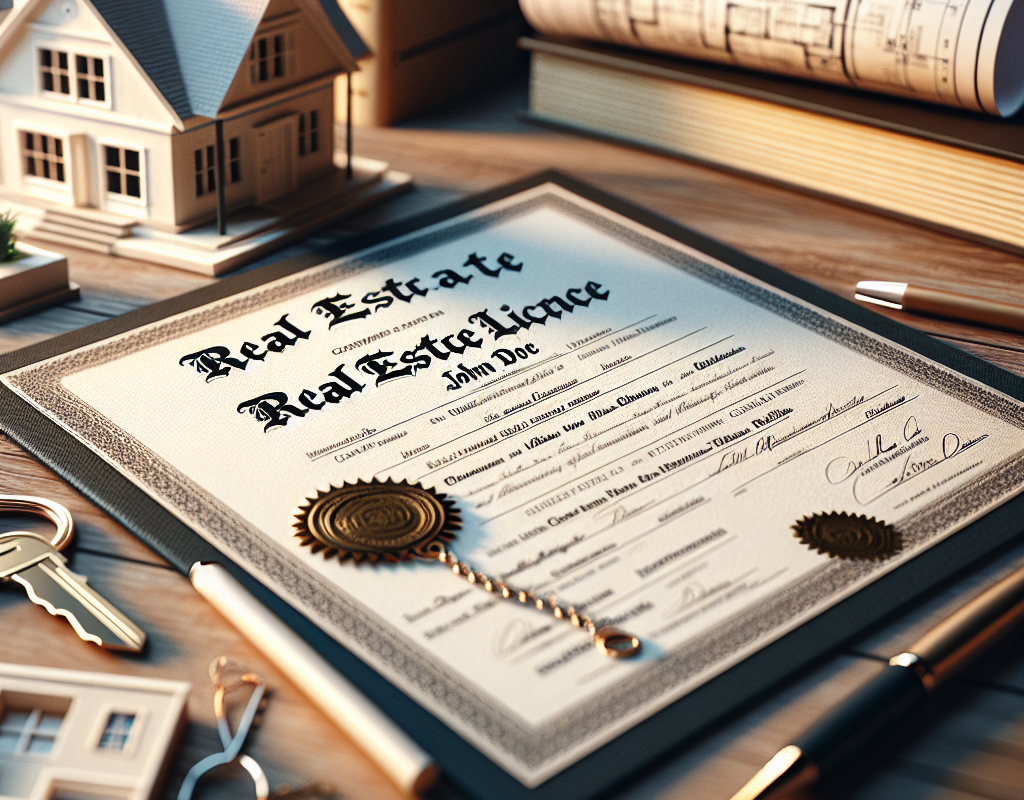Entering the world of real estate can be a rewarding career move. But first, you need to understand the process of obtaining a real estate license.
Each state has its own set of requirements for real estate licensure. These typically include age, education, and pre-licensing education hours.

The real estate exam is another crucial step. It tests your knowledge of real estate laws and practices.
But what about specific states? For instance, what are the PA real estate license requirements? Or the Indiana state real estate license requirements for 2024?
This guide will answer these questions and more. It will provide a comprehensive overview of the requirements for a real estate license, helping you navigate your path to becoming a real estate professional.
Understanding Real Estate Licensing
Real estate licensing is a crucial step for anyone wanting to sell properties legally. It ensures that agents have the necessary knowledge to protect consumers and maintain ethical standards.
The licensing process involves meeting several requirements. These include completing coursework, passing exams, and sometimes undergoing background checks.
Each state sets its own rules. While some requirements are consistent, there are key differences. Understanding these can help streamline your journey.
Key components of real estate licensing typically include:
- Age and educational prerequisites
- Completion of pre-licensing education
- Passing the real estate exam
- Meeting background check criteria
Grasping the broad aspects of real estate licensing is essential. It prepares you for specific state requirements and emphasizes the significance of learning and development in real estate practice.
General Requirements for a Real Estate License
Getting a real estate license involves several crucial steps. Each step ensures that aspiring agents are well-prepared.
Most states set a minimum age for applicants. Typically, you must be 18 or 19 years old.
Educational prerequisites are also common. Most states require a high school diploma or an equivalent.
Pre-licensing education is a pivotal requirement. Courses must be completed at approved institutions.
Before you can officially work as a real estate agent, passing a comprehensive exam is crucial. This exam covers both national and state-specific real estate practices.
Applicants must also pass a background check. This often includes fingerprinting for identification.
Application fees and costs can add up. It’s important to budget accordingly for these expenses.
Additionally, having a sponsoring broker is required. A broker guides new agents as they begin their careers.
Age and Education
To become a licensed real estate agent, meeting the age requirement is essential. Most states require applicants to be 18 or 19.
Educational qualifications form a foundational criterion. A high school diploma or equivalent is generally necessary.
These qualifications ensure that applicants are suitably prepared. They also indicate a readiness for further learning.
Having a basic level of education equips aspiring agents with critical skills. This includes fundamental communication and analytical skills.
The combination of age and education requirements serves as an initial filter. It helps ensure that prospective agents are poised for success in their training.
Pre-Licensing Education
Pre-licensing education is a key component of real estate licensure. It equips future agents with essential industry knowledge.
Most states require a specific number of pre-licensing education hours. This can range from 60 to 180 hours, depending on the state.
Courses cover various crucial topics. These include property management, financing, contracts, and real estate law.
Training providers must be accredited by the state. This ensures that the curriculum meets regulatory standards.
Pre-Licensing Course Structure
- Real estate principles
- Market analysis
- Ethics and fiduciary duties
- Law and practice basics
- Real estate math
Types of Pre-Licensing Providers
- Real estate schools
- Community colleges
- Online courses
Completing pre-licensing education is a significant milestone. It sets the foundation for taking the real estate exam.
The Real Estate Exam
The real estate exam is a pivotal step in licensure. It’s designed to test an applicant’s grasp of vital concepts.
Most states have a dual-part exam format. The test includes both national and state-specific sections.
Exam topics often cover property ownership, land use regulations, and real estate calculations.
Key Exam Topics
- Property rights
- Real estate contracts
- Valuation and market analysis
- Real estate finance
- Legal principles
Preparation is essential to succeed in the exam. Many candidates take preparatory courses or practice tests.
Passing the exam validates one’s readiness to serve clients. It also affirms the candidate’s knowledge of real estate laws and procedures.
Understanding the importance of both exam sections is crucial. Success in both indicates a comprehensive skill set.
Background Check and Fingerprinting
A background check is an integral part of obtaining a real estate license. It ensures that agents are trustworthy and ethical.
Fingerprinting is a common part of this process. It provides a reliable identification method.
Applicants must disclose any criminal history. This transparency is vital in the licensing process.
A background check reassures clients and employers. It shows that all licensed professionals are vetted for integrity.
By undergoing this process, future agents demonstrate their commitment to ethical standards. Meeting these requirements helps build trust in the real estate profession.
State-Specific Requirements
Real estate license requirements can vary significantly by state. Each state sets its own regulations to match its market needs and laws.
Understanding these state-specific differences is critical. It ensures compliance and helps new agents to prepare effectively for their careers.
Navigating these varying requirements involves researching your state’s guidelines. For prospective agents, it’s essential to stay updated with any changes in the state’s real estate regulations.
Pennsylvania Real Estate License Requirements
Pennsylvania sets specific requirements for aspiring real estate agents. These start with the completion of 75 hours of pre-licensing education.
This education must be obtained through a state-approved real estate school. The curriculum covers essential topics, including real estate law and practices.
Applicants must then pass the Pennsylvania real estate exam. This consists of both national and state-specific sections.
Key Pennsylvania Requirements
- 75-hour pre-licensing education
- Pass state and national exam sections
- Secure a sponsoring broker
In addition to these steps, applicants must choose a sponsoring broker. This broker will oversee and support them in the initial stages of their career.
Continuing education is also mandated. Agents must complete 14 hours every renewal cycle to maintain their licensure.
Understanding Pennsylvania’s unique real estate laws is essential. This ensures that agents can provide accurate guidance to clients.
Indiana State Real Estate License Requirements 2024
Indiana’s real estate license requirements are evolving. For 2024, updates reflect the state’s commitment to streamlined and comprehensive training.
Pre-licensing education in Indiana requires 90 hours of coursework. This must be completed through an approved institution.
Post-education, applicants face the Indiana real estate exam. It tests proficiency in both general real estate concepts and state-specific knowledge.
Key Indiana Requirements for 2024
- 90-hour pre-licensing education
- Pass the state-administered exam
- Choose a sponsoring broker
The choice of a sponsoring broker is vital for new agents. The broker provides mentorship and practical experience.
Continuing education is a crucial component for Indiana agents. Every four years, agents must fulfill the state’s continuing education credits.
Staying informed about local market trends is beneficial. Indiana’s dynamic real estate landscape requires adaptability and awareness from licensed agents.
Application Process and Associated Costs
Getting your real estate license involves several steps. The application process typically begins after completing your pre-licensing education.
You will need to fill out a detailed application. This includes personal information, proof of education, and exam results.
Alongside the application, there are fees. These can include exam fees, licensing fees, and background check costs.
Each state has its own fee structure. Checking with your state’s real estate commission ensures you are prepared financially.
It’s also important to budget for additional expenses like study materials and professional memberships. These help build a strong foundation for your career.
Choosing a Sponsoring Broker
Selecting a sponsoring broker is a pivotal decision. A good broker provides guidance and resources essential for a novice agent.
Look for a broker whose values and working style align with yours. Consider their reputation, training programs, and market expertise.
The right brokerage can significantly influence your success. They offer networking opportunities and continued education, propelling your career forward.
Post-Licensing and Continuing Education
After obtaining your real estate license, your education journey continues. Many states require post-licensing education within the first year. This helps new agents gain practical skills.
These courses focus on real-world scenarios, enhancing your ability to serve clients effectively. Participating in these training sessions can refine your skills and boost your confidence.
Continuing education is also crucial in real estate. It ensures you stay updated with changes in laws and market trends. Most states mandate continuing education to maintain a valid license.
These courses often include topics like ethics, contracts, and emerging technologies. Staying informed through continuing education can differentiate you in a competitive industry.
Engaging with new learning opportunities benefits your career. They expand your knowledge base and help you grow as a professional. This ongoing commitment to education is vital in an ever-evolving field.
Additional Considerations for Real Estate Professionals
Starting a real estate career requires more than obtaining a license. It’s about understanding the broader professional landscape. This involves considering various elements that impact real estate practice.
A key area to focus on is the ethical standards expected of real estate agents. Upholding ethics builds trust and reputation in the community. Legal compliance is equally important, safeguarding both you and your clients.
Consider these additional aspects:
- The importance of negotiation skills and understanding contracts.
- The benefits of joining professional associations for networking.
- Staying informed about market trends and economic factors.
Awareness of local zoning and land use regulations is crucial, especially if you plan to specialize in certain property types. Knowledge of these regulations helps prevent legal issues.
Focusing on these areas can solidify your standing in the real estate world. Being proactive in these aspects enhances your professional credibility.
The Role of Technology in Real Estate Education
Technology has transformed real estate education. It provides convenient access to vital resources. Online courses and webinars make learning flexible and accessible.
Virtual reality tools allow agents to experience realistic scenarios. This innovation is a game-changer for understanding complex property transactions. It also helps visualize spaces without physical presence.
Digital platforms facilitate ongoing learning. They offer updates on new real estate laws and best practices. Staying tech-savvy ensures you remain competitive and informed in this digital age.
Networking and Professional Associations
Networking is vital for a successful real estate career. Connecting with peers expands your opportunities and knowledge. It opens doors to collaborations and mentorship.
Joining professional associations can greatly benefit your career. They offer resources, networking events, and educational opportunities. These associations also advocate for ethical practices within the industry.
Actively participating in these groups builds your reputation. It connects you with experienced professionals. This engagement also keeps you informed about industry changes and trends.
Conclusion: Launching Your Real Estate Career
Embarking on a real estate career involves navigating requirements and challenges. Understanding the steps and fulfilling them paves the way to success. Each requirement equips you to meet the demands of the profession.
State-specific criteria shape much of your journey. They ensure you are well-prepared for the market you plan to enter. Meeting these standards lays a solid foundation for your career.
Mastering the licensing process is just the beginning. Continuously updating your skills and knowledge is crucial. Stay engaged, remain curious, and leverage resources to foster your growth in the real estate industry.
